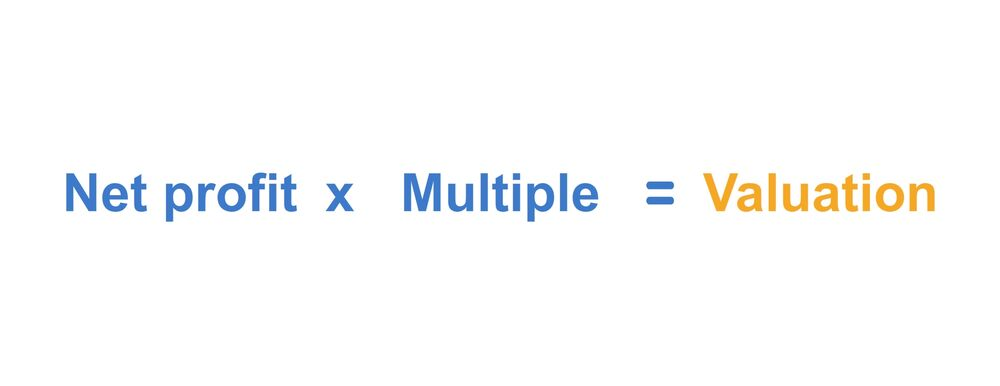How to Sell a WordPress Plugin Business the Right Way
As the owner of a WordPress plugin, you’re probably an expert at selling your product to consumers. But selling your entire business is often uncharted territory.
Figuring out how to prepare your business for sale, how to track down interested buyers, and how to get the highest valuation for your business can seem daunting to first-time sellers.
Luckily, you don’t have to walk this path alone.
We’ve helped thousands of online business owners navigate successful exits and have gained a wealth of knowledge about the sales process along the way.
In this article, we’ll put that knowledge to good use by outlining everything you need to know about selling your WordPress plugin business. Let’s get started!
How to Value a WordPress Plugin
By far the most important part of selling your WordPress plugin is determining how much your business is worth.
Your business may mean the world to you, but not everyone will have such strong feelings about it. That’s why when it comes to valuing a business, it’s best to put emotions aside and focus on the numbers instead.
There’s a broad spectrum of plugins available, which can make accurately calculating their value quite tricky.
Before we get into the nitty-gritty details of which metrics can make or break your valuation, let’s take a look at the basic formula we use to calculate the value of your plugin:

Calculating your net profit is usually a straightforward process, but a variety of factors can influence the multiple.
Determining the Multiple
There is some debate about whether WordPress plugins fall into the Digital Product or SaaS category. When it comes to sales multiples, most plugins tend to sell with multiples more in line with Digital Products.
Let’s take a look at some of the determining factors we take into consideration when calculating multiples.
Monetization
Your decision to sell your plugin on a subscription or one-off sale basis can have a big impact on the value of your business.
Businesses that make the majority of their revenues from recurring subscriptions tend to be priced better than businesses that rely on one-time or lifetime sales.
If your WordPress plugin relies primarily on recurring subscribers, the below help to increase the multiple:
- Lifetime Value or LTV – The longer the lifetime of each customer’s subscription, the better.
- Churn – Churn refers to the rate at which your customers cancel their subscriptions. Businesses with lower churn are often valued higher than those with a larger customer turnover rate.
- Customer Acquisition Cost or CAC – This metric refers to the amount of money you spend (usually on marketing) to acquire one new customer or subscriber. The less money you spend per customer, the higher your net profit.
Business Age
The age of your business plays an important part in the value of your plugin. Established businesses have a longer track record, making it easier to track the stability of profits and determine seasonality.
This helps put buyers at ease, so older businesses will be priced at a significant premium to newer businesses, even if the newer businesses have seen strong growth in the past year.
Owner Involvement
When you put your business on the market, you want it to appeal to as wide an audience as possible. If highly specialized coding knowledge is required to develop and maintain your plugin, you’re isolating a large number of buyers who don’t have these technical skills.
Plugins whose development and maintenance are streamlined and easily outsourceable will be priced at a significant premium from businesses with highly specialized tech stacks.
Also, keep in mind that many buyers are looking for a hands-off business that they can run in conjunction with other projects. For this reason, outsourcing time-consuming tasks like development, customer service, and marketing can significantly improve your multiple.
Traffic Sources
Ideally, you should diversify your traffic sources so that your business isn’t too dependent on a single source of traffic. That said, if you only have the time to focus your efforts on one area, boosting your organic traffic is a good way to go.
Organic traffic is free, so businesses with a larger percentage of organic customer acquisition (whether it be through organic rankings, free trials, etc) will be at a premium to businesses that rely significantly on paid ad campaigns to capture customers.
Niche
The niche you operate in can play a significant role in the performance of your business.
The competitiveness of the niche as well as how the business is positioned relative to competitors are significant factors in determining the multiple.
While changing niches usually isn’t a viable option, there are some things you can do to build authority in your niche and keep competitors at bay.
Writing guest posts, appearing on relevant podcasts, and participating in forums are great ways to build your reputation and boost your brand authority.
Preparing to Sell Your WordPress Plugin
Once you’ve had your business valued and are happy with the suggested listing price, the next step is to prepare for the sales process. For the most part, this involves gathering and organizing the paperwork and data you’ll need to present to interested buyers.
Accurate records are essential when selling your business. You won’t be able to demand a premium sale price if you can’t produce records that validate your business’s performance.
Generate Relevant Financial Documents
The most important financial document you’ll need to prepare is your Profit and Loss Statement (P&L). A P&L is a summary of your business’s income, expenses, and costs over a specific period of time.
This document allows buyers to compare your revenue and expenses to assess the profitability of your business.
P&Ls are a vital piece of the puzzle when calculating the value of your business, so make sure creating an accurate P&L is at the top of your to-do list.
Additional financial documents you may want to generate are a cash flow statement and a balance sheet, both of which give buyers an idea of your business’s liquidity and how the business’s finances are managed.
Gather Data and Analytics
As good as your sales pitch might be, interested buyers will want to see the hard numbers before they commit to buying your business.
First off, you’ll need to produce detailed sales records, ideally for the last 12 months. Try to sort the sales into different categories, like license type, new purchases vs. renewal payments, etc.
If you sell your plugin via your own website, buyers will want to see your traffic data. The easiest way to gather this information is to link an analytics software like Google Analytics or Clicky to your website. Filter the report so that it is easy to identify the different traffic sources, such as organic search, direct referrals, paid advertising referrals, email lists, newsletter referrals, etc.
Make sure that you create read-only logins for your Google Analytics reports when sending them to interested buyers.
Document Your Processes and Tools
During the course of building your business, you’ve likely come up with your own unique ways to optimize and streamline operational processes.
Buyers won’t have this knowledge when they take over the business, so it’s helpful to create Standard Operating Procedures (SOPs). An SOP is essentially a step-by-step instruction manual on how to complete the various tasks needed to run your business.
It’s also a good idea to create a list of the various tools and programs needed to maintain your business. This list will come in handy later in the sales process when you need to take stock of all the assets that need to be transferred to the new owner.
These tools might include things like:
- Web hosting
- Email accounts
- Email marketing/newsletter service
- Helpdesk service
- Cart abandonment service
- Google accounts
- Google Analytics
- Git repositories
- Payment processor accounts
- SSL certificates
- Domain name
While you compile this list, investigate how easy it is to transfer each of these accounts to a new owner. Some accounts, like email accounts, are super easy to transfer, while others, like Stripe accounts, are notoriously difficult to change ownership of.
If you come across accounts that may prove to be problematic to transfer, consider switching to a different service provider before you sell the business.
Finding the Right Buyer for Your Plugin
The two most common ways to sell a WordPress plugin are through a broker or via a private sale.
If you have a strong network of personal connections and are willing to spend time personally reaching out to each of them, then selling privately may be the best option for you as it allows you to be more selective about potential buyers.
If you’re hoping for a speedy exit or a competitive sale price, then consider selling through an online business broker. Brokers have an established audience base of interested buyers who regularly browse their listings. This is the easiest way to get your business in front of the right people, who have the motivation and available finances to purchase your business.
A larger buyer pool also increases the changes of competition between buyers which can drive up the sales price of your plugin.
Business as Usual
Selling your WordPress plugin business is super exciting. When you’re so close to the finish line, it’s easy to shift your attention away from your business to focus on your future projects.
Not maintaining a business while it’s on the market is a trap that many sellers fall into.
While some businesses are snapped up by interested buyers within a few days or even hours, they are the exception to the rule. Selling a business is a marathon, not a sprint. As a seller, you must ensure that your business’s performance remains steady, or your valuation may suffer as a result.
That last push of hard work will be worth it when you make a profitable exit from your business!
Make a Successful Exit Free From Regret
Selling your WordPress Plugin is not a decision to be taken lightly, but it can open so many new doors for you.
Exiting your business can give you a large injection of cash that you can use as growth capital for a new business, buy a house, pay for a vacation, or tick some items off your bucket list.
You may be waiting for the right time to sell, or to hit certain milestones before you put your business on the market. At the end of the day, you won’t really know how attractive and sellable your business is until you list with a broker or reach out to potential buyers.
If you’re ready to move one step closer to a profitable exit, submit your business for sale on our marketplace. If you’re still on the fence and would like more information about our sales process, schedule an obligation-free call with one of our business advisors. Our team of experts will assess your specific needs and suggest the best way forward.




